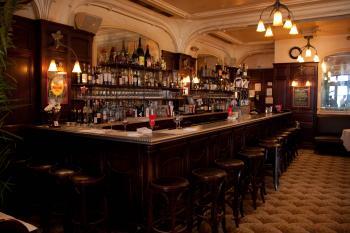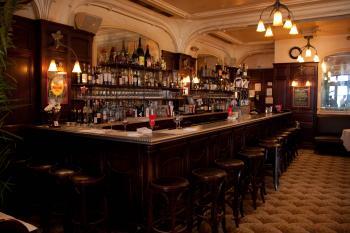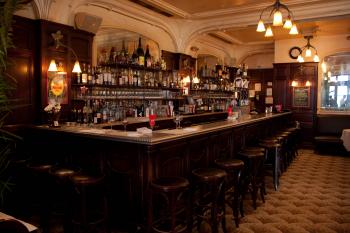NEW YORK—Since 1972, Jean Denoyer has launched 24 restaurants, including three nightclubs throughout the Unites States. Each restaurant group has its own beauty, charm, and subtle personality, with similar menus and staffed with some of the most talented chefs.
From New York to California and places in between, Denoyer has left his mark in the restaurant business. In New York, people can enjoy dining at La Goulue, Le Colonial, Brasserie Ruhlmann, Orsay, Japonais and when you are in Greenwich, Connecticut, L’Escale. He was among the first to bring the French brasserie to New York and has established many of the most beautiful and refined French-influenced dining places in the United States. Many others have since followed his lead.
Born and raised in Paris, Denoyer lived in a hotel and had an extremely strict upbringing. “My father decided that I would be a farmer. We had a farm about 25 miles east of Paris and my father decided that I would be the farmer of the family.”
Denoyer worked the farm for three years, and when he was 23, told his father he was leaving for New York because his father had worked at the Waldorf there for three and half years and Jean thought that it would put his father at ease since he would be close to father’s friends. He arrived in New York in 1965 and worked for a friend of his father’s where, according to him, he “dusted pans at the hotel.”
His life took a different turn when he signed on as an agent for a French photographer and also managed a nightclub. At the nightclub, guests would ask if they could buy his jacket. At that time, according to Denoyer, in New York, most people wore polyester and there was no fashion. His clothes were European and fashionable. Denoyer realized there was a market for European fashion. He opened a shop called “Denoyer” on a shoestring budget on 60th between Second and Third Avenues. It was an immediate success. He started with men’s clothing and later expanded to ladies fashion. He got out of the fashion business because years later when Madison Avenue became packed with European clothing stores.
He first opened the renowned bistro, La Goulue. La Goulue, “The Glutton,” the name perhaps a reflection of its times, was started with money made from his successful clothing business. According to Denoyer it was the first French bistro to open in New York City. He worked and managed both businesses for a while. The restaurant became a success and was frequented by the rich and famous.
We met at one of his beautiful Upper East Side establishments, the majestic French brasserie, Orsay. At a corner table near the balcony overlooking 75th Street, restaurateur Jean Denoyer leaned toward me. “I am not a traditionalist. I like to put a restaurant together. I like to find a site that appeals to me, then rebuild, open, launch it, and go on to another one,” he said with a warm smile.






